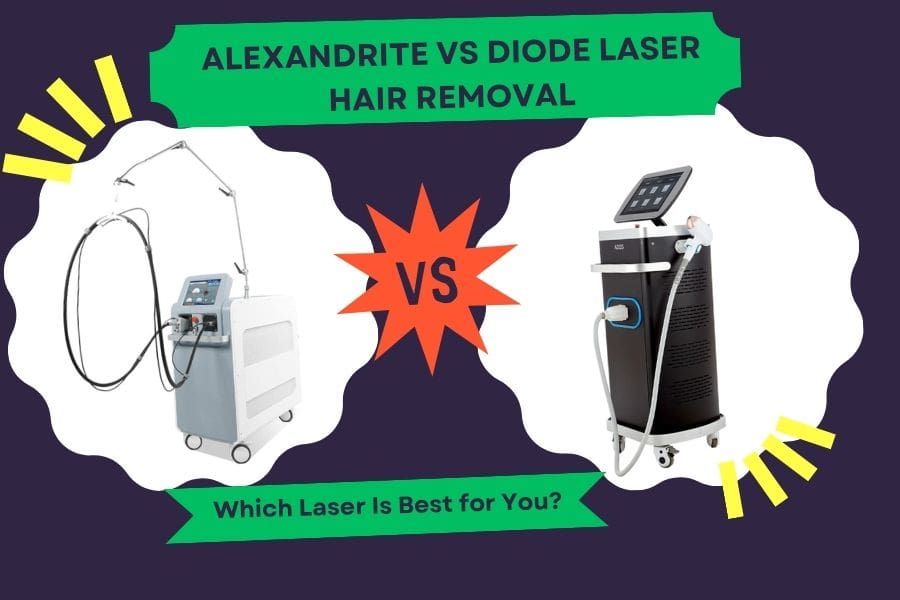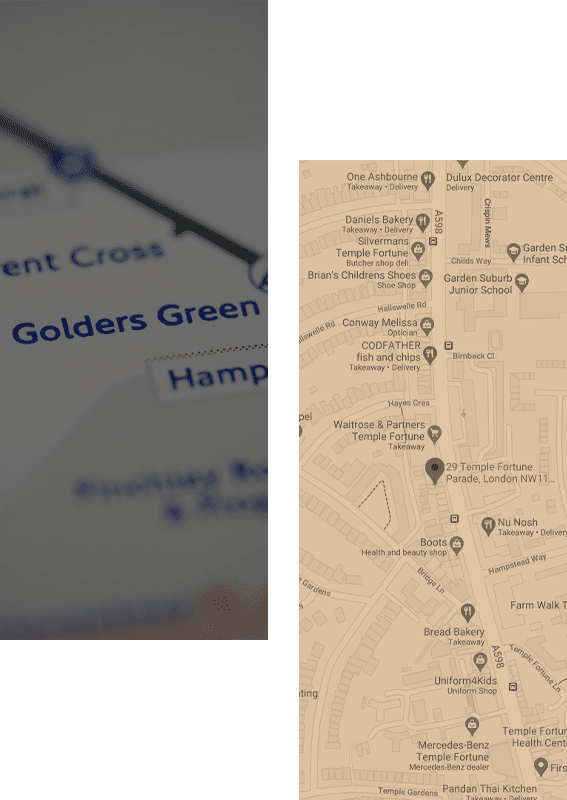The journey to smooth, hair-free skin through laser technology is a significant decision. While laser hair removal is established as the premier method for long-term results, its success depends entirely on the technology chosen for your specific needs. For patients in London, the discussion often centres on two leading platforms, leading to the question of Alexandrite vs Diode laser hair removal.
Understanding the clinical differences between these two systems is key to making an informed choice. At Dr. PJ Aesthetic Clinic, we believe patient education is a vital part of care. This guide will provide a clear, professional comparison of Alexandrite vs Diode laser hair removal, clarifying how each works and for whom they are best suited.
How Does Alexandrite vs Diode Laser Hair Removal Work?
Before comparing the two lasers, it’s helpful to understand the core science. All laser hair removal operates on a principle called selective photothermolysis. In simple terms, the laser emits a highly focused beam of light at a specific wavelength. This light is absorbed by the melanin (the pigment) in your hair follicles. This energy converts to heat, which then damages the follicle and impairs its ability to grow hair in the future.
The key to a safe and effective treatment is using a wavelength that is strongly absorbed by the hair’s pigment, but not by the pigment in the surrounding skin. This is the fundamental difference in the Alexandrite vs Diode laser hair removal debate.

Benefits of Alexandrite Laser Hair Removal for Light Skin Types
The Alexandrite laser, operating at a 755nm wavelength, has long been a trusted and powerful tool in dermatology. Its primary characteristics are its power and speed.
- Best For: Patients with fair to light olive skin tones (Fitzpatrick types I-III).
- How it Works: The 755nm wavelength is exceptionally well-absorbed by melanin. This makes it incredibly effective at targeting and destroying hair follicles, especially when there is a high contrast between dark hair and light skin.
- Known For: Speed and efficiency. The Alexandrite laser often has a large spot size, allowing it to treat large areas like the legs or back very quickly.
- The Limitation: This high affinity for melanin is also its main drawback. It is not a suitable choice for darker skin tones because the laser can have difficulty distinguishing between the pigment in the hair and the pigment in the skin, which increases the risk of side effects.
Advantages of Diode Laser Hair Removal for Darker Skin Tones
The Diode laser platform operates at a longer wavelength, typically around 810nm. This difference changes how the laser interacts with the skin, offering greater versatility.
- Best For: Patients with darker skin tones (Fitzpatrick types IV-VI) and those with coarse, thick hair.
- How it Works: The longer wavelength penetrates deeper into the skin, bypassing more of the melanin in the epidermis (the skin’s surface). It still effectively heats the hair follicle, but with a much lower risk to the surrounding skin. This is the most critical safety advantage in the Alexandrite vs Diode laser hair removal discussion.
- Known For: Its safety profile on darker skin and its high effectiveness on dense, coarse hair, making it an excellent choice for areas like the bikini line or underarms.
Alexandrite vs Diode Laser Hair Removal: Which Is Best for Your Hair and Skin Type?
The verdict in the Alexandrite vs Diode laser hair removal debate is simple: the best laser is the one that is right for you. The choice is not based on which machine is “better” in general, but on a clinical assessment of your specific skin tone and hair type.
- If you have fair skin and dark hair, the Alexandrite laser is an exceptionally powerful and efficient choice.
- If you have darker skin or very coarse hair, the Diode laser is the definitive choice for a safe and effective treatment.
The most important step is always a professional consultation. Here at Dr. PJ Aesthetic Clinic, your treatment begins with a thorough evaluation. We will assess your candidacy, discuss your goals, and recommend the specific technology that will provide you with the safest, most effective, and most comfortable treatment possible. This commitment to personalised care is our standard.

Ready to Begin Your Journey to Smoother Skin?
If you are ready to move beyond temporary hair removal methods, we invite you to schedule a professional consultation at our London clinic. Let us design an effective laser hair removal plan tailored to your specific needs.
Frequently Asked Questions (FAQs) About Alexandrite vs Diode Laser Hair Removal
Is laser hair removal painful?
Most patients describe the sensation as a quick snap, like a rubber band against the skin. Both our Alexandrite vs Diode laser hair removal systems have integrated cooling technology to keep the surface of the skin comfortable and protected throughout the treatment.
Why will I need multiple sessions?
Laser energy is only effective on hair that is in its active growth (anagen) phase. Since only a portion of your hair is in this phase at any given time, a series of treatments is required to target all follicles as they cycle through their growth stages. Most patients require 6-8 sessions for optimal results.
Is there a price difference between Alexandrite vs Diode laser hair removal?
No. The cost of a treatment package is based on the size of the area being treated, not the specific laser technology used. Both are premier medical-grade platforms and fall within a similar price structure.
Will laser hair removal work on my blonde or grey hair?
Because the treatment relies on targeting pigment, it is not effective on hair with little to no melanin. Hair that is very light blonde, red, or grey does not have a sufficient target for the laser energy to be effective.

